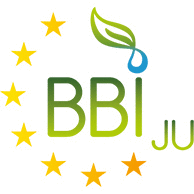Harnessing nature’s bounty -
Bio economy
Our commitment to a sustainable bio economy
Governments worldwide have set ambitious targets for environmental and climate protection. Yet around 95% of all industrially manufactured goods currently rely on the availability of fossil fuels. The bioeconomy is increasingly recognized as a way to enable society to live well within the limits of our planet. Tomorrow’s economy depends on today’s shift to the bioeconomy and this shift comes with a huge responsibility – to harvest and process biological resources efficiently and in a way that preserves ecosystems and biodiversity and respects human rights.
With demand for bio-based chemicals set to grow strongly through 2030, Clariant is committed to fostering the transition to a sustainable bioeconomy – that protects nature and maintains high social standards. Where biological resources are sustainably managed, recovered and reused as much as possible.
Clariant has established research and development centers and biotechnology facilities where we test a variety of different feedstocks and develop these into high performing, sustainable solutions for our customers. We also partner with experts in our value chains to source and process plant ingredients sustainably.
Our commitment to a sustainable and circular bioeconomy reflects our goals to develop innovative, sustainable, and bio-based chemicals, as well as achieve our ambitious greenhouse gas reduction targets.
Collaboration - The key to building a sustainable bio economy
Clariant proactively engages with its supply and value chains to steer and ensure sustainability. Our efforts include special projects such as the SPOTS (Sustainable Palm Oil and Traceability with Sabah small producers) initiative and SPIRAL (Small Producer Inclusivity and Resilience Alliance) to foster sustainability in bioeconomy supply chains.
We are a member of the Round Table on Sustainable Palm Oil, setting the framework and standards for sustainability certification in the palm value chain. We are also part of the collaborative initiative Action for Sustainable Derivatives.
Since 2013, Clariant has been partner in the Bio-based Industries Consortium (BIC). BIC represents the private sector in two public-private partnerships with the European Commission: The Bio-based Industries Joint Undertaking (2014-2020) and its successor Circular Biobased Europe Joint Undertaking (2021-2027) and aims to establish and demonstrate new sustainable circular and biobased value chains.
Since 2022, Clariant has also been a member of the Renewable Carbon Initiative, an organization that aims to promote the transition from fossil carbon to renewable carbon for use in the chemical industry. Joining the Renewable Carbon Initiative reflects Clariant’s commitment to driving forward innovative sustainability practices whereby defossilization, circularity and a bio-based economy are top priorities.

Strategic partnership - Unlocking multiple opportunities for sustainability
Through strategic partnerships with companies in Indonesia, South Korea, Brazil and France, Clariant has access to sustainably-sourced plant extracts and advanced plant processing technologies.
A bio mass balance approach - Enabling the replacement of fossil fuel content
As markets move towards replacing fossil-based, virgin feedstock, Clariant like many chemical companies is adopting mass balancing approaches in production. A mass balance approach allows the use of existing production and installation networks and makes the production of mass balanced bio-based products more cost competitive, also in complex and long value chains. This can reduce greenhouse gas emissions, specifically when residual biomass feedstock is used, consequently improving the overall sustainability performance of the final product[1].
Mass balance, like any chain of custody model, aims to create transparency and trust throughout the value chain with regard to the properties of goods and materials that are otherwise hard to distinguish between samples. Clariant applies mass balancing as follows:
Clariant uses the RSPO Mass Balance certification and allocation system for palm-based materials. Through mass balance we draw more sustainable palm products on the market and take an important step in the right direction for improved sustainability performance in this sector.
Clariant has entered into a collaboration with customers for the sourcing of bio-based feedstock based on mass balance certification. For this purpose, Clariant uses the REDcert2 as a certification standard and the International Sustainability & Carbon Certification Plus (ISCC+) global certification system.
Watch our video below to learn more about the mass balance approach for our bio-based alternatives.
Bio-based solutions for our customers
The bioeconomy is a main lever for Clariant to reduce its own carbon footprint as well as that of our customers. Furthermore, it offers solutions to achieve increased circularity with bio-based products that can be made biodegradable. From solutions for the conversion of bio-based raw materials and producing bioethanol, to upgrading waste, Clariant has a growing share of bio-based products and processing aids in its portfolio. In fact we promote the use of renewable raw materials in our processes and products wherever possible and reasonable.

